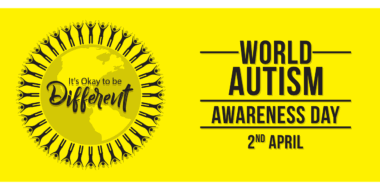Incorporating ESG Investments into Education Planning Accounts
The growing importance of Environmental, Social, and Governance (ESG) investments cannot be overstated, especially as awareness regarding sustainable practices increases. Integrating ESG investments into education planning accounts provides a unique approach to funding future academic pursuits. This strategy not only supports personal financial growth but also contributes to societal development by empowering future generations with strong ethical foundations. Families focusing on education must align their financial investments with values that ensure sustainability and responsibility. As educational costs rise, it becomes essential for families to think long-term about how their investments can yield positive societal outcomes. Through a curated mix of sustainable investment options, families can develop strategies that allow them to meet their financial obligations while promoting important ethical considerations. Investment vehicles that align with these values can range from socially responsible mutual funds, green bonds, or ETFs focused on sustainable companies. Structuring accounts to include these options provides a double benefit: educational funding and a commitment towards a more sustainable future. This approach is essential for families who want to raise socially aware children, setting strong examples of integrity and financial acumen.
To successfully incorporate ESG investments into education planning, understanding the core principles of ESG is essential. Individuals and families should begin by researching various investment alternatives when it comes to education savings accounts such as 529 plans. These educational accounts can host a diverse array of ESG investment options, enabling families to tailor their portfolios according to their preferences. By selecting funds and securities that adhere to ethical standards, family members can ensure they are contributing positively to societal goals. Implementing an ESG investment strategy not only secures educational funds but also puts one’s values into practice. Social consciousness can make a significant difference in educational environments. Factors to consider when evaluating ESG investments include company transparency, charitable contributions, and employee welfare initiatives. Investing in businesses demonstrating integrity in their operations will provide lasting value to both educational goals and broader social goals as well. Moreover, involving children in these discussions can be a valuable educational experience, teaching them about the importance of making responsible financial decisions while considering the environmental impact and social justice.
Strategies for Choosing ESG Investments
Choosing the right ESG investments requires thorough research and understanding of sustainable investing principles. Investors must evaluate various options and select those that resonate with their values and objectives. ESG ratings and indices can aid in this selection process, providing insights into which companies uphold sustainability, social responsibility, and good governance practices. Resources such as environmental reports and third-party ratings can help clarify a company’s commitment to ESG standards. Financial advisors knowledgeable in sustainable investments can also provide valuable insight into this evolving space, ensuring confident decision-making for education planning. Families should also consider diversifying their investment portfolios, as having a mix of asset classes—including stocks, bonds, and alternative investments—can help mitigate risks associated with market fluctuations. Evaluating the performance of specific ESG funds alongside traditional investment forms can help families to see the long-term benefits. Additionally, periodic reassessment of investments can introduce new ESG options that align with evolving family values or investment goals. Transparency and solid performance history are crucial indicators to watch for when making decisions about which ESG funds to include in an education planning strategy.
As the landscape of education funding changes, it is crucial to remain aware of new financial opportunities and strategies. Sustainable investing aligns well with the increasing emphasis on holistic education that fosters not just academic performance, but also character development. Families can achieve this balance by prioritizing investments that support businesses focused on social causes, providing students with broader experiences and perspectives. ESG investments can also lead to the creation of funds with missions that reflect better educational outcomes, contributing towards equity and access for all students. By adopting responsible practices, families can inspire future generations to continue the mission of sustainability in educational settings. Embracing these contemporary practices not only prepares children for academic success but also instills a sense of duty toward improving the world. Together, these investments can motivate engagement in personal growth and social values. Additionally, parents can reinforce these lessons by initiating conversations about personal finance, including the implications of investments on education and the community. These discussions create strong foundations and foster responsible decision-making, enabling children to make informed financial choices in their futures.
The Role of Financial Advisors in ESG Education Planning
Engaging with a financial advisor who specializes in ESG investments is fundamental for families wanting to incorporate these values into education planning. A knowledgeable advisor can assess the family’s financial goals while aligning them with ESG principles. They also provide crucial insights into market trends and can identify opportunities that resonate with the family’s values. Furthermore, advisors can assist families in setting realistic educational funding targets while keeping ethical considerations in mind. Collaborating with a financial expert ensures a comprehensive strategy that balances investment growth and aligned values. These professionals can help families optimize their accounts amid fluctuating markets, ensuring that sustainable investments still yield the expected returns. Financial advice specific to ESG can empower families to navigate the complexities of investment choices while considering the broader picture of societal impact. With guidance, families can feel confident in their decisions, encouraging responsible wealth management practices as part of education strategies. Inclusion of these conversations about sustainable finance not only builds trust but also cultivates life skills that children will carry into adulthood as they shape their futures.
Incorporating ESG investments into education planning accounts provides more than just financial benefits. It creates a narrative of responsibility, ethics, and awareness. The impact of such investments is far-reaching, contributing to environmental preservation and social equity while promoting quality education. By instilling these values through education funding, families can ensure that their children grow up aware of and committed to making a difference. Moreover, this approach can inspire young people to advocate for responsible business practices and pursue careers focused on sustainability and social impact. These investments serve as a practical lesson in the interplay between finance and ethics. As students navigate their educational paths, the influence of socially responsible investment practices will support their understanding of how individual choices can resonate through society. Having conversations surrounding finance, ethics, and education reinforces important messages about integrity and responsibility. Parents play a crucial role in this education, guiding discussions that can shape a child’s world view. Thus, ESG investments in education planning accounts emerge as a powerful vehicle for fostering not just educated graduates but socially conscious individuals ready to contribute positively to society.
The Future of ESG in Education Planning
Looking ahead, the integration of ESG investments into education planning accounts is set to gain momentum. The growing public interest in sustainable practices signals a shift in how families approach financial planning. This evolution is reflective of enhanced awareness regarding climate change, social inequalities, and governance matters. Families are increasingly seeking investment solutions aligning with their purpose and ethics, making sustainable finance an essential component of future educational funding strategies. With advancements in technology, access to ESG investment opportunities is becoming more user-friendly, enabling families to engage in holistic financial management. The future promises a wider range of educational institutions that specialize in sustainability, supporting the ideals behind ESG investments. Therefore, families can rest assured that their contributions will not only support individual academic pursuits but will also serve broader societal goals. Collaborating with educational entities to further enhance financial literacy and sustainability among students positions families to empower the next generation of changemakers. As more families adopt this model, we can anticipate a collective shift toward a brighter ethical future that encapsulates the values we wish to instill through education.
In summary, the incorporation of ESG investments into education planning accounts showcases a pioneering approach to sustainable finance. This method encourages families to explore their values while securing their children’s education. By investing in responsible financial products, families support ethical initiatives and contribute to a sustainable future capable of reshaping societal norms. Creating a comprehensive education planning strategy centered around ESG investments not only helps meet financial goals but also emphasizes the importance of values-based living. Families embracing this paradigm reflect a commitment to socially responsible growth for future generations. Communication about these financial opportunities promotes awareness, ethical decision-making, and engagement in sustainable practices. Consequently, this change nurtures a culture of mindfulness and responsibility that extends beyond personal financial management. Through these efforts, families take a proactive stand in creating a better world by addressing pressing challenges facing society today. Overall, the integration of ESG in education planning signifies a larger movement toward embedding sustainable principles in everyday priorities. By shining light on these practices, we pave the way toward a more equitable and just future for all, inspiring families to recognize their role in promoting ethical positive change.





